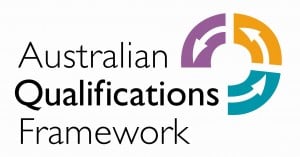Bachelor of Information Technology (098239M)
The Bachelor of Information Technology offers a broad understanding of the concepts and practices of information technology and information systems, supported by related areas in data science and technology management. The course focuses on preparing students for the challenges of IT careers in the modern business environment, specifically preparing students for roles in programming, software development, network administration, web development, business analysis, database administration and systems administration. It aims to equip students with the decision-making and critical analysis skills required in systems and data management, as well as a variety of functional areas in business development and project management. There is a particular emphasis on the development of professional and personal skills to underpin success in business. This prepares students to apply their professional knowledge and skills in Information and Communication Technology (ICT) within an industry of their choice.
Course Learning Outcomes
1. Demonstrate current, comprehensive, coherent and connected knowledge.
-
- In depth knowledge of the principles and concepts of information and communications technology
- Capacity to make links between theory and practice and apply knowledge to real world business problems
2. Command the skills for adaptable, lifelong learning to grow in knowledge and skill throughout their lives.
-
- Communicate effectively in varied modes and contexts and transfer knowledge and skills to others
- Use critical thinking and creative skills to analyse and synthesise information and evaluate approaches to new problems
- Apply problem solving skills to apply logical and creative thinking to solve problems and evaluate solutions
- Access, evaluate and use information professionally
- Develop social interaction skills to work effectively in teams, inspire their colleagues and manage responsibly with positive results.
3. Display initiative and responsibility in their professional activities and exercise judgement in planning, problem solving and decision-making
-
- Apply and use current techniques, skills and tools necessary for computing practice
- Apply knowledge of best practices and standards and their application
- Create and manage an effective project plan
4. Attain an appreciation of diversity in an evolving world.
-
- Value ethical conduct and professionalism
- Appreciate the experiences and achievements of other cultures
- Communicate ethically and effectively in multicultural contexts (including Indigenous Australia)
- Explain the legal, ethical, social and cultural issues that affect the use, design, and implementation of information systems.
Delivery Mode
- Face-to-Face with blended learning facilities
Subject Credit Points
- 4 Credit Points each subject
Exit Pathways
- Diploma of Information Technology
CAREER OPTIONS
- ICT Project Officer
- ICT Business Development Officer
- ICT Business Analyst
- Systems Analyst
- Web Developer
- Development Programmer
- Software and Application Programmer
- Software Engineer
- Database Administration and Support Officer
- Systems Administration and Support Officer
- Network Administration and Support Officer
- ICT Support Technician
- ICT Customer Support Officer
*Advancement in these roles generally requires additional certification or training
PATHWAY TO FURTHER STUDIES
Graduates of the Bachelor in Information Technology will be eligible to apply for admission into a number of postgraduate qualifications in Australia and overseas. Graduates may also apply to study the Masters of Information Technology with KOI. Graduates will also satisfy Australian Computing Society’s requirements of knowledge and skills of an ICT professional.
STUDENT PROFILE
The table in the pop-up window here gives an indication of the likely peer cohort for new students at KOI. It provides data on students that commenced Bachelor of Information Technology study and passed the census date in the most relevant recent intake period for which data are available, including those admitted through all offer rounds, across all Australian campuses, and international students studying in Australia.
ATAR PROFILE
The table in the pop-up window here gives ATAR profile for those offered places wholly or partly on the basis of ATAR in Trimester 1, 2023
ADMISSION REQUIREMENTS
General admission criteria apply to the course.



